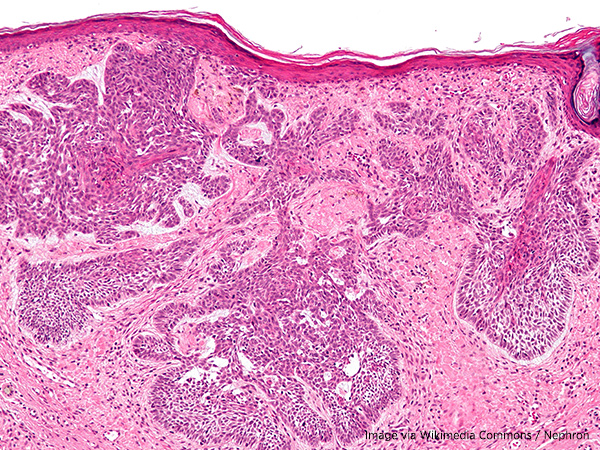Releasing the Immune System’s Brakes Against Skin Cancer
The FDA approved the immune checkpoint inhibitor, cemiplimab-rwlc, for certain patients with locally advanced or metastatic basal cell carcinoma—the most common form of skin cancer.

The U.S. Food and Drug Administration (FDA) has approved cemiplimab-rwlc (Libtayo) to treat certain patients with locally advanced or metastatic basal cell carcinoma.
The agency approval was for individuals with locally advanced basal cell carcinoma who have been previously treated or who are not candidates for therapy with a hedgehog pathway inhibitor, an agent that disrupts cell-signaling processes. In addition, the FDA granted accelerated approval to cemiplimab-rwlc for patients with metastatic basal cell carcinoma previously treated with or who are not candidates for therapy with a hedgehog pathway inhibitor.
Cemiplimab-rwlc targets the PD-1/PD-L1 pathway that puts the brakes on cancer-fighting immune cells called T cells. Cemiplimab-rwlc is the seventh checkpoint inhibitor approved by the FDA. In 2018, it was approved to treat squamous cell carcinoma, which is another common type of skin cancer.
The data to demonstrate efficacy for these latest approvals was collected in an ongoing open-label, multi-center, non-randomized trial in patients for whom therapy with a hedgehog pathway inhibitor was problematic and who were not candidates for curative surgery or curative radiation therapy.
Among the 84 patients with locally advanced basal cell carcinoma, the objective response rate was 29 percent with 79 percent of responders maintaining their response for at least six months. Among the 28 patients with metastatic basal cell carcinoma, the objective response rate was 21 percent with all responders maintaining their responses for at least six months.
Basal-cell carcinoma is the most common type of skin cancer. Typically, it shows up as a painless raised area of skin, which may appear shiny with small blood vessels running over it or look ulcerated.
The FDA rendered both the regular and the accelerated approval on February 9, 2021. Accelerated approval means continued approval may be contingent upon a confirmatory trial.
